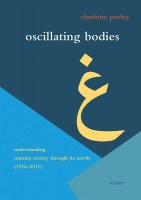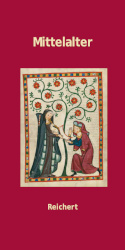Search
Oscillating Bodies
Understanding Tunisian Society through its Novels (1956-2011)
2022
17.0 x 24.0 cm, 256 p., 1 illustrations b/w, hardback
ISBN: 9783954903801
go to ebook version
17.0 x 24.0 cm, 256 p., 1 illustrations b/w, hardback
69,00 €
ISBN: 9783954903801
go to ebook version
Short Description
Oscillating Bodies reads together the depiction of human bodies in arabophone and francophone Tunisian novels. This produces an understanding of Tunisian society from the country’s independence in 1956 until the revolutionary upheavals of 2010/2011. It appears as a society that oscillates between the poles of tradition and modernity as well as various cultural influences. Oscillating Bodies also forms and can be read as an introduction to the Tunisian novel that is otherwise ignored by international literary studies.Description
Oscillating Bodies offers insights into Tunisian society that are more than numbers and statistics. To do so, author Charlotte Pardey approaches the country and its people through carefully selected contemporary Tunisian novels. With specific consideration for the depiction and use of the human body in the novels a society appears that oscillates between different poles, such as that of tradition and modernity as well as various cultural influences. The book’s five chapters describe Tunisia from its independence in 1956 until the revolutionary upheavals of 2010/2011 through novels.Most Tunisian novels are written in Arabic or French. As a result, the country has two separate literary traditions that are very rarely “read together”. Generally, Tunisian literature has not yet received a lot of attention in literary studies. If works were dealt with at all, they were analyzed and discussed separately according to language boundaries by Arabic or French Literature specialists. Oscillating Bodies now reads arabophone and francophone Tunisian novel together and shows them in fruitful dialogue with each other. In addition to this, time and again, reference is made to other literary traditions (such as the literatures of France, North Africa, and the Levant.
The notion of oscillation not only allows to read Tunisian society, it is also employed to analyze the descriptions of bodies in the novels. Through the concept of embodiment (Thomas J. Csordas), the bodily being-in-the-world, the novel’s employment of human is explored. Other concepts are drawn upon (hauntology, abjection, fitna), that all contain an oscillating movement which allows to discuss specific aspects human bodies in literature such as presence, materiality, and visibility. It also connects oscillation and the bodily being-in-the-world in literature.
Oscillating Bodies can be read with various objectives: On the one hand it offers an introduction to Tunisian novels, its central motives, and themes. It lays the ground for future research that can join its effort in giving Tunisian literature its proper place in literary research. To do so, Oscillating Bodies makes arabophone and francophone novels accessible to an anglophone audience. On the other hand, the book offers insights into Tunisian society and explores the social context of the 2010/2011 revolutionary upheavals. Finally, through the concept of oscillation, it offers a perspective to read the post-colonial situation, a perspective that also lends itself for the study of other post-colonial societies and their literatures.




 Table of Contents
Table of Contents

 Neuerscheinungen 2023/2024
Neuerscheinungen 2023/2024
 Gesamtverzeichnis 2023/2024
Gesamtverzeichnis 2023/2024
 Katalog Oriental Studies & Linguistics
Katalog Oriental Studies & Linguistics
 Mittelalter
Mittelalter
 Deutsche Inschriften
Deutsche Inschriften
 Musiktherapie
Musiktherapie
 Literaturen im Kontext
Literaturen im Kontext